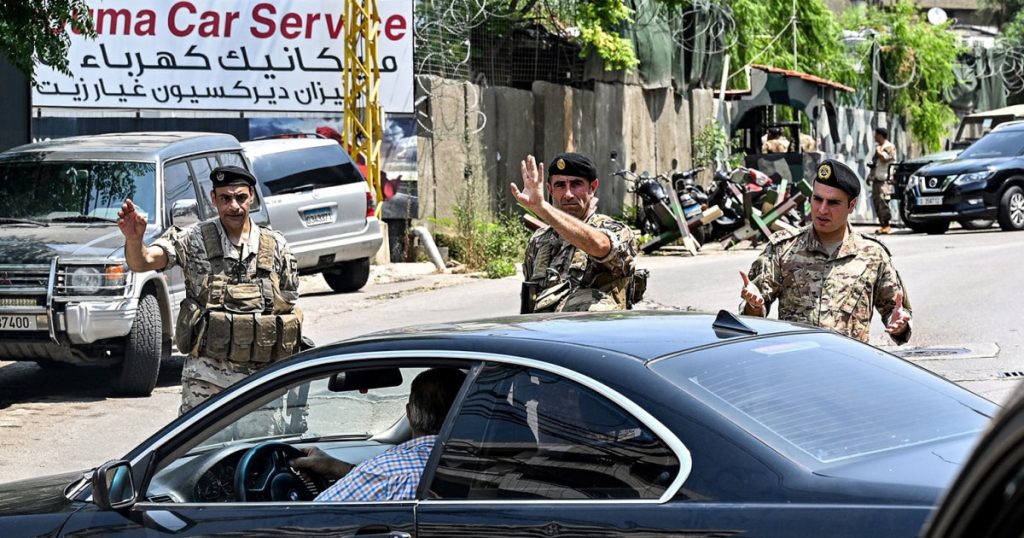Lebanese authorities have stated that the situation following an attack on the US Embassy in Beirut is stable, and investigations are currently underway. Foreign Minister Abdullah Bou Habib condemned the attack, which harkens back to a deadly bombing in 1983 that killed 63 people and was attributed to Hezbollah. The embassy was subsequently relocated to a suburb north of the capital, reflecting Lebanon’s turbulent history of political chaos and economic struggles. The country shares a border with Israel to the north, and tensions have been heightened due to ongoing military exchanges between Israel and Hezbollah alongside the Israeli offensive in Gaza following attacks by Hamas.
Israeli military chief Lt. Gen. Herzi Halevi has indicated that troops are poised to potentially launch an offensive in the north in response to escalating tensions with Hezbollah. Pressure has been mounting on Prime Minister Netanyahu to take action following rockets fired by the militant group resulting in wildfires in the region. Netanyahu has vowed to restore security to the north, emphasizing the need to push back against Hezbollah’s activities. National security minister Itamar Ben-Gvir took a hardline stance, advocating for the destruction of Hezbollah strongholds and making it clear that Israel is prepared for conflict if necessary.
The situation in Lebanon is complex, with ongoing power struggles and military confrontations complicating efforts for peace and stability in the region. The history of conflict and economic difficulties in Lebanon adds to the challenges faced by the government and its people. The recent attack on the US Embassy serves as a stark reminder of the volatile nature of the region and the potential for further violence. Additionally, the proximity of Lebanon to Israel and the existing tensions between the two countries have fueled concerns about the potential for wider conflict.
The Israeli military’s readiness to take offensive action in the north underscores the seriousness of the situation and the potential for military escalation in the region. The threat of further attacks by Hezbollah and other militant groups has put Israel on high alert, with a focus on restoring security and pushing back against perceived threats. The ongoing back-and-forth between Israeli forces and groups like Hezbollah underscores the complexities and risks involved in maintaining stability in the region. The need for decisive action and tough responses to security threats is clear, but the potential for further violence and unrest remains a significant concern.
The statements by Israeli officials, including Prime Minister Netanyahu and Defense Minister Ben-Gvir, highlight the firm stance taken by the government in response to security threats. The emphasis on restoring security and pushing back against Hezbollah’s activities underscores the seriousness of the situation and the potential for further conflict. The need to address security concerns in the region is paramount, and the commitment of Israeli authorities to taking decisive action is evident. However, the risk of further violence and instability looms large, and efforts to de-escalate tensions and promote peace will be crucial in navigating the challenges faced by both Israel and Lebanon.
Overall, the situation following the attack on the US Embassy in Beirut reflects the complex and volatile nature of the region, with tensions between Israel and Hezbollah adding to the challenges faced by Lebanon and its neighbors. The potential for further military confrontations and violence underscores the need for decisive action and strong responses to security threats. The history of conflict and instability in the region complicates efforts for peace and stability, highlighting the urgent need for diplomatic solutions and de-escalation of tensions. The statements by Lebanese and Israeli officials signal a commitment to addressing security concerns, but the risk of further violence and unrest remains a significant challenge that will require careful navigation in the days and weeks ahead.


